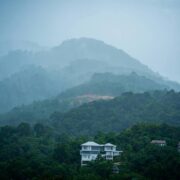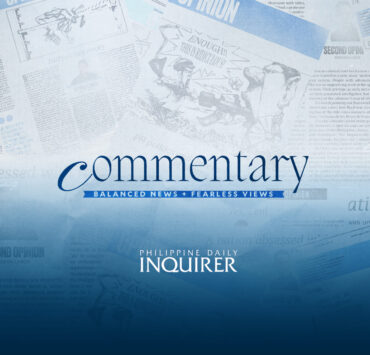Negative impact of Syria’s regime change

I sadly concur with the observation of some that the continuing existence of the so-called “state” of Israel can be attributed in great part to the division in the Muslim-Arab world. Another irrefutable reason is the betrayal of some of the key players in the region.
I am no fan of Bashar al-Assad, the former president of Syria who recently fled to Russia when rebels captured the capital city of Damascus. I am aware of his dictatorship, incompetence, idiocy, and human rights violations against his own people. Having said that, in the greater lens of international strategic politics, international relations, and the global march for a multipolar world, the fall of Assad and Damascus to former al-Qaida terrorists and the Islamic State of Iraq and Syria (IS) fighters who wreaked havoc in both Syria and Iraq, is undeniably a setback to the Axis of Resistance, a blow to the Palestinian cause, and a delay to the eventual death of the Zionist regime.
The treachery of Turkiye and its connivance with the Zionist and United States plotters will be remembered across the Muslim and Arab world as the greatest betrayal in modern history.
Turkiye’s president, Recep Erdogan, will forever be tagged as the culprit and the big traitor in the Palestinians’ quest for an independent state. Russia and Iran will never forget this betrayal. This dastardly move by Ankara has planted the seed of a future conflict which is not only contemporary, but historical.
The debacle in Syria is a defeat for Iran and, to a certain extent, Russia. Only myopic freaks will fail to discern that the fiasco in Syria is an extension of the ongoing proxy war between Russia and the North Atlantic Treaty Organization (Nato), the continuing genocide in Gaza, and the war of attrition in Lebanon.
The global cabal of the elite is fanatical in its dreams and illusion of inflicting a strategic defeat on Russia, and will do everything to realize their idiotic goal of achieving this, even to the point of using terrorists and IS/ISIL mass murderers.
Syria is crucial and utterly important to Iran because it is its land bridge for the help, monies, weapons, and support to the Resistance forces in Lebanon and the Gaza Strip. Now that Syria has fallen to the Turkish-backed and Western plotters, Iran will have a hard time sending help to the Resistance. As far as Russia is concerned, what happened in Damascus is a setback in its foothold in the Middle East.
The long-term effect is the weakening of Hezbollah and the further isolation of Palestinian fighters, both in the West Bank and in Gaza. The grim result: further delay to the Palestinians’ dream of a state of their own.
The victory of Turkiye and the West in Syria is a gift to the Zionist regime. Not only does it give breathing space to Israel’s prime minister Benjamin Netanyahu, but it also shows that the unipolar world headed by the US still has the muscle to flex its doomed vision of the globe.
Due to Syria’s importance in the world theater, Iran entered the Syrian civil war as early as 2011, and even asked Hezbollah to join the fight. Russia entered the fray on Sept. 30, 2015. Because of this, the Syrian government survived. But it seems that Assad did not learn anything at all. In 2018, both Iran and Russia asked Syria to retrain and reequip its military, an advice that Assad ignored.
Now, both Russia and Israel are engaged in wars, against Ukraine-Nato and Iran, respectively. The conflict is an opening exploited to the maximum by the global elite. I’d say both Russia and Iran are at fault in what happened at Damascus. If they were truly serious in their goal of a multipolar world, they should have thrown everything at the Syrian front. In their reluctance and inaction, they have unwittingly allowed the triumph of the West and provided some breathing room for Zionism.
I remain steadfast in my support of the Palestinian cause. Though its quest for a Palestinian state will be delayed, my faith in its eventual success will never waver.
—————–
Jose Mario D. De Vega is associate professor I in the Institute of General Education of the Department of Humanities at National University-Manila.

















